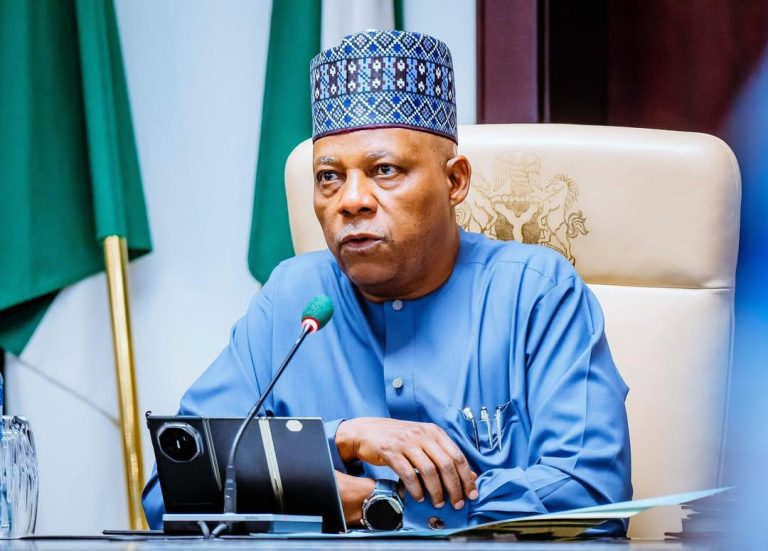Vice-President Kashim Shettima has commended the $1 billion Nigeria–Brazil Green Imperative Agricultural Initiative, describing it as a milestone in strengthening bilateral ties and advancing Nigeria’s food security agenda.
Shettima gave the commendation on Tuesday during the opening session of the 2nd Nigeria–Brazil Strategic Dialogue Mechanism held at the Presidential Villa, Abuja.
He said the initiative signals a renewed strategic alliance with Brazil, rooted in mutual respect and focused on delivering practical results.
“Brazil and Nigeria are not bound by geography but by a shared dream—two large, diverse democracies, rich in human and natural resources, and committed to mutual prosperity,” Shettima said.
The Vice-President emphasized the transformative potential of the Green Imperative Project, jointly developed by both countries, which aims to deploy over $1 billion to deliver mechanized farming equipment, training, and service centres across Nigeria.
“This project will create jobs, boost productivity, and help secure Nigeria’s ambition to feed itself and others. The Green Imperative is a flagship of this partnership, and one we are determined to deliver,” he added.
Shettima also reaffirmed the Tinubu administration’s economic reforms, including the removal of fuel subsidies, unification of the exchange rate, and the introduction of a new business facilitation regime.
“These decisions are not without cost, but they are restoring credibility to our markets and discipline to public finance,” he said.
He noted that the government is laying the foundation for a $1 trillion economy by 2030, with reforms targeting agriculture, energy, education, and public finance.
“In agriculture, we’re moving from subsistence to scale. In energy, we’re attracting investment into gas, refining, and renewables. We see clear opportunities for joint ventures with Brazil, especially in biofuels and renewable technologies,” Shettima noted.
He also called for stronger collaboration in health, education, innovation, and security, stressing the need to invest in youth through student loans, digital platforms, and vocational training.
“Memoranda of Understanding are only as meaningful as the actions they inspire. Let this Dialogue not be a ceremonial reunion, but a pivot from promise to proof, from aspiration to execution,” Shettima urged.
Speaking at the event, Brazil’s Vice-President Geraldo Alckmin reaffirmed Brazil’s commitment to strengthening the partnership, anchored on shared values and concrete outcomes.
“We’re witnessing important results in many areas. Our partnership is being reinforced through Memoranda of Understanding in agriculture and security, and through frequent high-level visits such as President Tinubu’s participation in the G20 and the upcoming BRICS meeting,” Alckmin said.
He invited Nigeria to participate in COP30 in Belém later this year, emphasizing cooperation on global climate and energy transition issues, as Brazil is home to the world’s largest tropical forest and a leader in low-carbon initiatives.
“We cannot discuss global energy transition without including Brazil—and Nigeria must be a key partner in this journey,” he added.
Also speaking, Nigeria’s Minister of Foreign Affairs, Amb. Yusuf Tuggar, described the event as a landmark moment in Nigeria–Brazil relations, which date back to the 1960s. He noted that the Strategic Dialogue Mechanism, first held in 2013 in Brasília, was designed to deepen cooperation on economic and social development.
The Brazilian Ambassador to Nigeria, Carlos Garcete, who represented Brazil’s Foreign Affairs Minister, said the country values its deep cultural and historical ties with Nigeria. He emphasized that Africa remains a top priority in Brazil’s foreign policy under President Luiz Inácio Lula da Silva.
“Brazil is reintegrating into the global stage—and relations with Africa, especially Nigeria, are central to that effort,” Garcete said.


